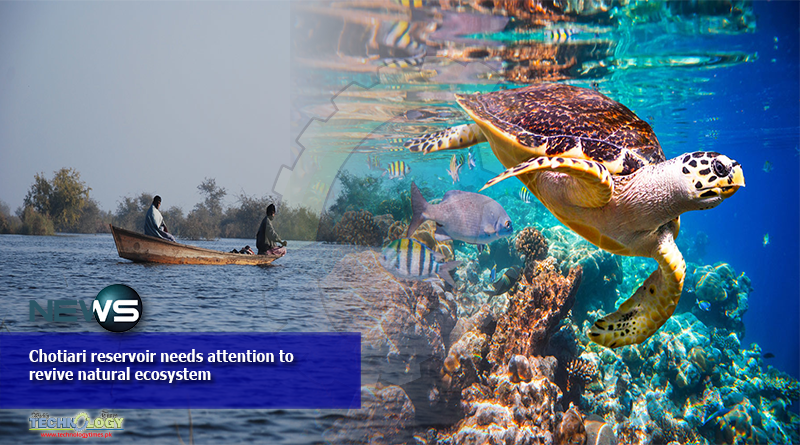Fishermen living in villages near the Chotiari reservoir, Sanghar district expecting to catch more fishes this season, but they do not have any market to sell it.

Reports took from community activists indicates that in normal days, traders buy the fish from Chotiari reservoir and surrounding water to sell in major cities of Sindh, Punjab and Khyber Pakhtunkhwa provinces.
With the lockdown in place, the fishermen have caught more fishes, but traders are reluctant to buy fish for the market, leaving the community people in a pity situation.
Fish caught from the Chotiari reservoir is considered famous because of its taste and quality compared to fish that come to the market from freshwater bodies of the province.
Ramzan Mallah, a community activist living in Village Phulel, besides Chotiari reservoir, said it was the only freshwater reservoir, in which no contaminated water of factories or municipal waste from towns and cities, drained.
Effluents from factories and municipal sewage contaminate the water, destroy vegetation cover, and disturb wildlife.
“In Chotiari, since the water is clean, the fish is safe for consumption, thus loved by the people across the country,” he said.
The reservoir receives water through Ranto distributory of Nara canal, which usually brings natural fish seeds and silt to maintain the ecology of the wetland. But the community people said sometimes the reservoir receives more water, in which case they cannot manage to operate boats.
Community activists said the Inland Fisheries Department under the World Bank-funded project Accelerated Action Plan (AAP) has put around 3.3 million seed in the reservoir this year, which was now ready to catch.
Mian M Ali Anjum, conservation officer at WWF Pakistan, who has conducted assessment about the status of habitats of wildlife species in the recent winter (2020) said, “Ups and downs in the reservoir in terms of releasing or stopping water has affected the ecosystem negatively.”
Keeping in mind the importance of tourism, the provincial culture and tourism department has also established some residential huts to facilitate tourists. But the area people said there was need to maintain a unified level of water in every season to maintain the ecosystem.
Especially in the winter, the reservoir and its lakes attract flocks of migratory birds to stay for some time from November till February—March every year.
The recent study titled “Environmental impact of conversion of natural wetland into reservoir: A case Study of Chotiari reservoir in Pakistan” conducted in 2019 by Mehran University of Engineering and Technology (MUET) showed that the reservoir has caused seepages and devastated agriculture land, inundated natural grass species, trees and ruined the natural rangelands within 5km radius. It has not just impacted the life and livelihoods of fishermen, but also disturbed farmers and herders.
The study recommended taking steps to mitigate the social, economic and environmental impacts of the Chotiari reservoir and take steps to revive the natural ecosystem of the lake.
But, the community activists believe that there was a gap in understanding on the part of government institutions, academia and researchers in realising the share of the ecosystem. They believe that communities were being overlooked in policy-making, management and development decisions.
That was why the country was losing natural resources and ruining sources of livelihoods of hundreds of people, residing along the natural wetlands, besides losing important wildlife species.
